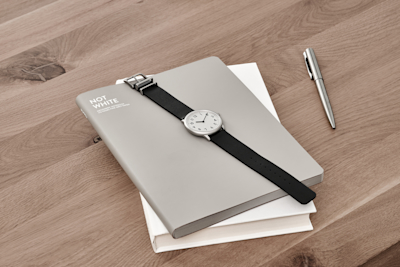
How to Achieve Work-Life Balance
“We think, mistakenly, that success is the result of the amount of time we put in at work, instead of the quality of time we put in.” ~ Arianna Huffington
Work-life balance is only possible when you’re able to set boundaries for yourself, both when you’re working and when you’re not. There are a number of scenarios which can cause you to struggle with work-life balance. If you work from home, it’s even more crucial that you put these boundaries in place. We’ve added some suggestions below:
When you don’t have any hobbies, your work tends to become the only thing you dedicate time to. It’s worth looking for alternatives, anything, sport, music, improv, yoga, gardening, there are so many options to choose from.
If your work is not satisfying enough or it bores you, you won’t be able to understand why you’re doing it at all. Try asking for a promotion or more responsibility, if possible. It may sound counter productive to ask for more work when you’re already overworked but you might start feeling as though you’ve achieved more and you’ll definitely be less bored.
If you’re having a hard time because you’re dealing with difficulties in your private life, it’s possible that you’ll devote yourself to your work, rather than attempt to fix the original problem(s).
Saying yes to everything is a bad idea, at home and at work. This is probably the most common issue with work-life balance, people agree to do tasks to keep other people happy rather than thinking about how these tasks will affect the ones they already have. Learn how to say no. Saying no isn’t rude, it’s self preservation, if you know you’ll be able to do it at a later date, suggest the later date.
Not knowing yourself well enough. There are so many ways we trick ourselves into thinking we should do this, or we shouldn’t do that and all of them are related to the opinions of others. If you know yourself well enough, you’ll understand your boundaries, you’ll know when you can and can’t work. You’ll know your own limits and if you don’t, you might find out the hard way. Learn from your mistakes and consider the way every experience will contribute to your growth as a person.
Honesty is the best policy.
Being honest with yourself is just as important as being honest with other people, if not more so. On no account should you lie when attempting to complete a task, as excuses will make the situation significantly worse.
If you agree to something you won’t have time for, you’ll overdo it and the work won’t be as good as it would’ve been if you were more honest. Evidence shows that when ‘deadlines are in place, workers tend to complete their tasks at the last minute, often leading to lower quality outcomes’. [1]
This also applies to deadlines you set yourself. Remember, there’s no shame in asking for help and if in doubt, don’t hate, delegate.
Have you ever wondered how many hours people spend at work per week? Research conducted by Harvard Business School found that 94% of people happen to work more than 50 hours per week and nearly 50% of people tend to work more than 65. That’s a lot, isn’t it? Overworking causes tiredness and stress and yet people seem unable to find any solution to help them work less and be more productive.
As a result, relationships with family members and friends can become frayed. It can become harmful to their health, as well as your own. No one wants to be responsible for other people’s unhappiness. Sheryl Sandberg, the COO of Facebook, said that nowadays the idea of work-life balance does not make any sense but in our opinion, the concept is open to interpretation.
How do we define work-life balance?
Here’s the truth, we don’t know how to define work-life balance. It largely depends on what kind of work you do. There isn’t a specific answer that would be applicable to every situation. We’re all individuals, with different needs.
If you know you need to do 40 hours a week, make sure you track your time and try not to go over. If you do 10 hours instead of 8 on a Monday because you were really focused on a task, do less on Friday etc. It might be hard at first but remember that if you don’t get paid to do overtime, don’t do it.
Often, when you run your own business, or you work remotely, your job is your life, or at least a large part of your life. We know this from our own experiences. Some might say that building a company is as engaging and time-consuming as building a relationship and we totally agree with that. If you have a full-time job on site, it’s easier to work regular hours and have more control over what you do.
However, work-life balance can be disastrous in practice, especially if you’re putting pressure on yourself to achieve it. It’s almost impossible to have your life perfectly organized. You’ll start to count the hours you spend at the office, with your children, with your friends, with your family, at the gym, at the supermarket etc. You’ll obsess over it until trying to achieve work-life balance becomes more stressful than both your work and your life. It’s a trap!
Try to find alternatives to work-life balance.
Changing your thought processes with regards to the way you think about the time you spend at work and outside of work makes a huge difference. For example, there’s the idea of work-life integrity whereby you have to ask yourself a series of questions: Are you the same person at work and after work? Are you guided by the same values and purposes?
Work-life integrity isn’t about how much time we spend at work. It’s about who we are at work. When you are true to yourself in doing your job, there is a feeling of peace that comes with it. If your work conflicts with your values, it lacks meaning and satisfaction and your life seems out of balance, no matter how much you achieve and how successful you are. The same applies to life outside of work.
We're fans of the idea of work-life balance.
Work-life rhythm means that there can be highs and lows and we don’t have to struggle to keep everything balanced. We all have those moments during the day when we need to speed up or when we need to slow down. Find your rhythm.
Instead of trying to slow down when you’re in a rush and speed up when you feel sluggish, try going with the flow. Let’s think of relaxation as essential to our productivity. Knowing when you need to slow down will help you maintain your rhythm. Studies have shown that our natural physiology works best in cycles of 90–120 minutes followed by times of rest and recovery. Keep that in mind! Manage your energy, not your time.
Be mindful. After all, we’re human beings, not robots.
If you enjoyed this article, please check out similar ones featured on our blog and learn more about how slowing down and living more of your life offline with less distractions can help enhance your health and overall well-being.
You might also like to join our FORUM Community where we discuss ideas and exchange information about all things connected to wellness and digital well-being.
Related stories

Befriending the Watch. Interview with Krzysztof Matowski
In my profession, time is a key parameter. Hence, my love for watches: it grows more from an awareness of the passage of time than from a need to control it

Desk-scaping: The art of decluttering your workspace
A decluttered space eliminates distractions and does not disrupt the flow of your work.

Effects of chronic sleep deprivation on health & well-being
How your sleep habits are shaping your life, productivity & relationships and why prioritizing rest is a crucial step towards safeguarding your well-being.
If you'd like to receive the best stories from our blog, keep up to date with our progress and get notified about our product releases and special discounts.